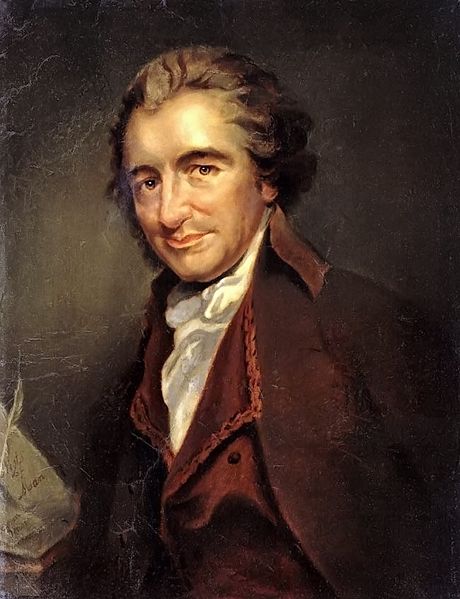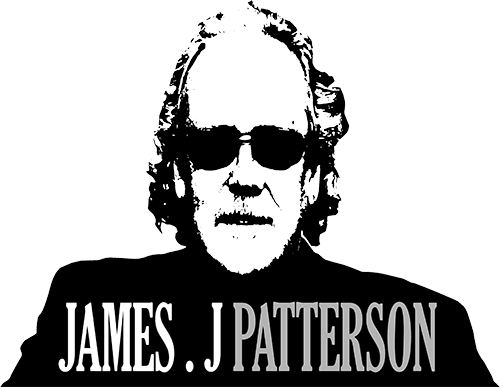ASP CELEBRATES THOMAS PAINE!
On Saturday, Januray 29th, 2011, Alan Squire Publishing celebrated the birthday of Thomas Paine, rviving a proud tradition that goes back to the opening decades of the 19th Century. Sixty people gathered at Gadsby’s Tavern in Old Town Alexandria, Virginia. There was music by the Fife & Drum Corps, colonial ale, and a special visit from President James Madison himself! Paine scholar Patrick Hughes spoke regarding the history of Paine’s birthday celebrations, and James J Patterson gave a crash course on Paine’s enduring legacy. To read those remarks and see some pics of the event just click below!
The Founding Father Time Forgot!Remarks by James J Patterson celebrating the 274th birthday of Thomas Paine, The Founding Father Time Forgot! At Gadsby’s Tavern, Old Town, Alexandria, Virginia, January 29, 2011. (Photographs courtesy of Hankins/Lawrence Photography)
Ladies and gentlemen: Tonight we revive a proud and noble tradition that goes back two hundred years to the opening decades of the 19th Century. Tonight we celebrate the Birthday of Thomas Paine!
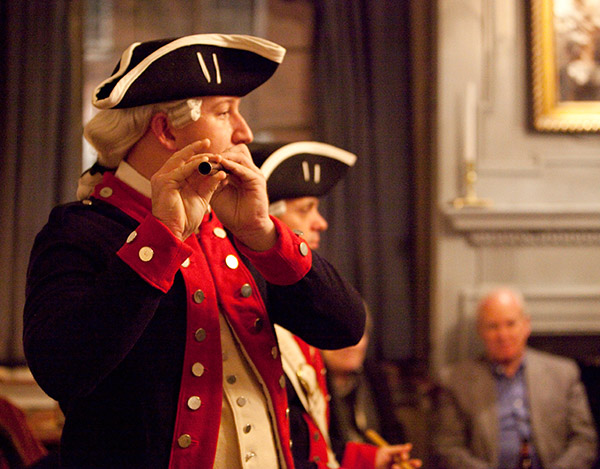
Tom Paine died in 1809 and within a year or two of his death a notice was published in London, England, that a celebration in his honor was to be held at a tavern on his birthday. More than five hundred people showed up! Word of that event traveled across the ocean and within a decade birthday celebrations were taking place all across America, and truth be told, the world. This tradition continued well into the 20th Century. In 1877, Walt Whitman was a guest speaker at a Paine birthday celebration in Philadelphia.
Let me take you back to England, 1774.
Thomas Paine was in trouble. He was in a boatload of trouble. And no, not just because his second marriage was on the rocks. And no, not because he seemed to have trouble holding down a job! He had written a pamphlet (surprise, surprise) criticizing the King’s excise tax collecting system, and guess what? It wasn’t well received! He asked his friends what in the world he was going to do and to a man they said something like, “I don’t know what you should do, but try and stay the hell away from me!â€
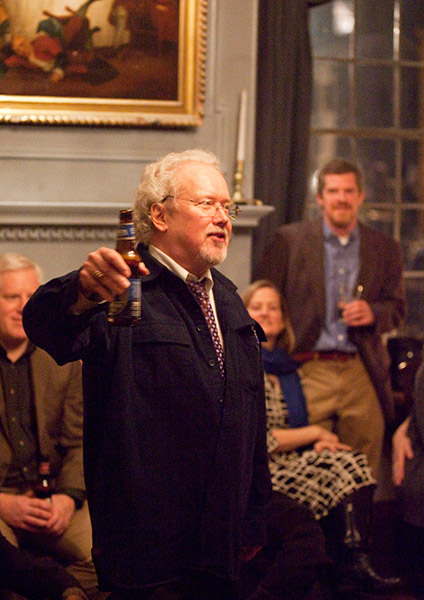
In London, a scientist friend and member of the excise tax board said, “I can’t help you either but perhaps you should go see an American living here in London, maybe he can suggest something, oh yeah, and don’t call me, I’ll call you!â€
Scholarship is iffy about where, in what venue, Thomas Paine and Benjamin Franklin actually met. Howard Fast, in his wonderful novel and stage play, Citizen Tom Paine, suggested they met in Franklin’s office. But hey, Fast was under investigation by Senator Joe McCarthy’s House of Un-American Activities Committee – Joe didn’t like Tom – and may have been loath to suggest the obvious, that they met in a pub, not unlike the one in which we find ourselves tonight. At least that’s where I put them first shaking hands.
In any event, the conversation between Franklin and Paine was a short one.
Franklin: I know you. You’re Tom Paine, I read your pamphlet on the tax. Nice job, on the pamphlet, I mean. I’m a bit of a printer myself.
Paine: Thanks, but I think I may be in a bit of a pickle.
Franklin: Well if you’re referring to your future here in England, I feel it’s safe to say – you don’t have one.
Paine: WTF am I gonna do?
Franklin: Well, you can stay here and spend the rest of your now very short life in irons, sick, diseased and starving to death, or maybe they’ll just lop off your head. But the King usually likes to set an example with his felons, so he’ll probably let his boys have some fun with you first. Disembowelment is all the rage. I understand the Royal Carver is pretty handy w a rusty blade.
Paine: I was really hoping for something a little more, upbeat.
Franklin: Well, here, I’ll write you a couple of letters of introduction. I’ll say you’re a good printer and not bad with a turn of phrase or some such. But you’ll have to cross the pond to Philadelphia for them to do you any good.
Paine: Awesome! I can’t wait to get my ass out of England!
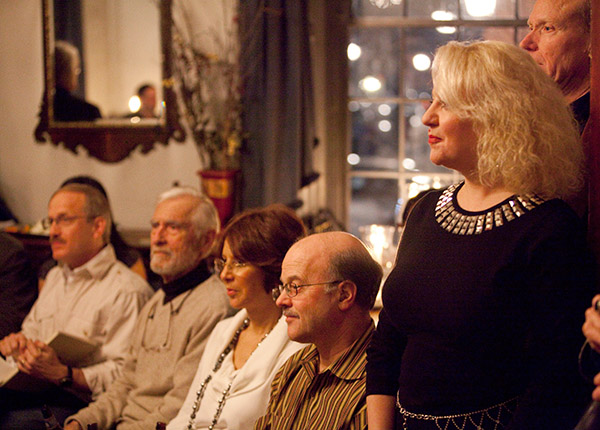
When Thomas Paine’s boat docked in Philly from England late in 1774, he tumbled down the gangplank sick as a dog. A few weeks later he was up and running. He had contacted a few folks recommended by his new pal Ben Franklin, back in England, and was slowly getting the lay of the land. One of his first impressions in his new hometown was, to him, absolutely astonishing! He noticed that in the local pubs, magistrates and bankers, tradesmen and laborers, and even leather and feather clad natives, were gathering under one roof to break bread, quaff tasty beverages, and gab about the events of the day! To you this may not seem much to write home about, but in the world from which Tom Paine had just landed it was nothing short of world shaking! Different classes of people gathering under one roof? Sharing opinions? Where Paine came from, you could fuggeddabouddit!
The next thing he noticed, once his ear adjusted to the lively texture of the lingo, was that the chatter in the pubs had changed from the chest-beating bombast of the “Shot heard ’round the world” in Lexington & Concord to a more plaintive, “Oh, holy crap, Batman! WTF are we gonna do? We just shot and killed some soldiers from the most powerful nation on earth! What are we going to say when they get here? Tell ’em we’re sorry? Buy some extra stamps?” Worried that this new idea of appeasing the Crown might actually be getting some traction, Paine went back to his rooms and sat down to write.

Listen, he said, (I’m paraphrasing here) you people don’t know who you’re dealing with! You’re real proud about asserting your independence and shooting a few red coats, but get it through your heads! The British army and navy are on their way, and instead of wondering what your going to say when they get here, you should be thinking very very seriously about how you’re going to protect yourselves! Further, Paine used the occasion to administer a minor lesson in contemporary economics. The British Empire, he informed his readers, was broke. Its vast army and navy were costing much more than the empire was bringing in. The taxes and profits from trade with their colonies weren’t keeping up with their military machine. What the British war machine requires isn’t your taxes, nor your loyalty, nor the value of your trade.
What it requires now is PLUNDER!
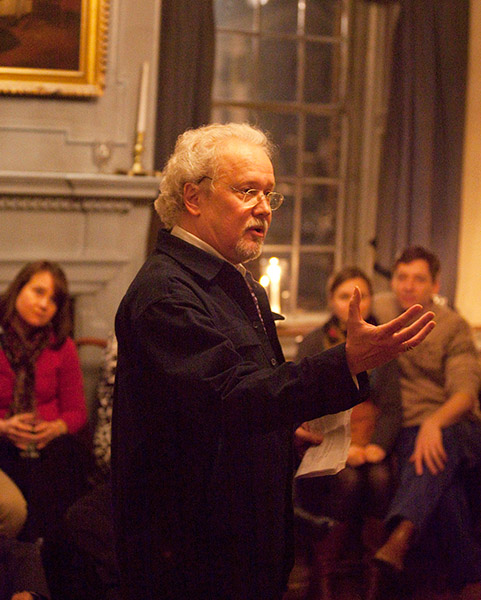
The British GOADED you into firing the first shot! They’ve been trying to drag you into a fight all along! And once you spilled their blood, they now feel justified to come and put you down once and for all, to rob you of everything you’ve got!
Is there a modern term for the syndrome of a child repeating the sins of his or her parents? Think of Paine’s observation of the British goading the colonies into a fight when you revisit our own more recent history: The Gulf Of Tonkin, the WMD, the Battleship Maine, and the Spanish American War…
Common Sense hit the streets of Philadelphia in mid January, 1776. Here’s what historian Harvey Kaye said about what happened next:
“Common Sense was read by hundreds of thousands. Within just a few months 150,000 copies of one or another edition were distributed in America alone. The equivalent sales today would be 15 million, making it, proportionally, the nation’s best seller, ever. By one estimation, half a million copies were sold in the course of the revolution. Plus, copies were shared, and those who could not read it heard it read aloud in homes, taverns, workshops and fields.â€
Until today, Paine informed his readers, governments were formed only one way, a warlord enters an area, squashes the people and bleeds them dry, and his descendants are called KINGS…
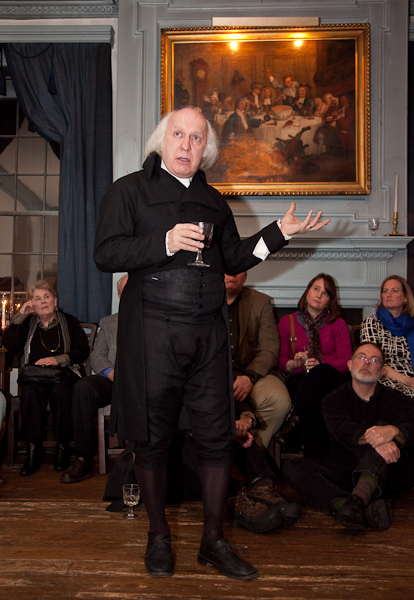
But in the first few pages of Common Sense, Paine solves a riddle that had beguiled philosophers going all the way back to Plato and Aristotle. It had certainly vexed his French Enlightenment heroes, Montesquieu, Voltaire, Diderot, and the Englishman, Edmund Burke.
It seems like such a simple query, What is EQUALITY? Perhaps it means we’re all the same? But we know we’re not all the same, so, What Is Equality?
Paine hits it outta the park in the first few pages. Imagine a wilderness, he asked his readers, and American colonists, I think it’s safe to say, could imagine some wilderness. Imagine a wilderness with no people in it. Then some folks arrive. Well, one person can’t chop down a forest and build homes, one person can’t till and plow the fields and raise crops for a multitude of families, all one person can do is hide in a cave! No, to build homes and grow food you need to get together, to form a community, and yes, eventually, some rules, a code, a government.
But it is that need of one another in order to survive that makes us equal, the rich and the poor alike.
Three months after the publication of Common Sense Thomas Jefferson hit town. He had come to write a Declaration of Independence for the American Colonies. And when he got to Philadelphia, all anyone could talk about was Tom Paine’s pamphlet. And he did what any good writer would do. He listened. And then he compressed its message and gave it back to them.
“All men are created equal,†said Jefferson. And when he wrote that, everyone knew what he meant.
We need each other.
And our need for one another makes us equal!
That equality of need makes us free.
Free to create any kind of world we so choose.
And that, my friends, is the most dangerous idea since Love Thy Neighbor as you would yourself!
Cue the Fife & Drums!
Patrick Hughes and some friends of Thomas Paine
Mr Hughes Explains
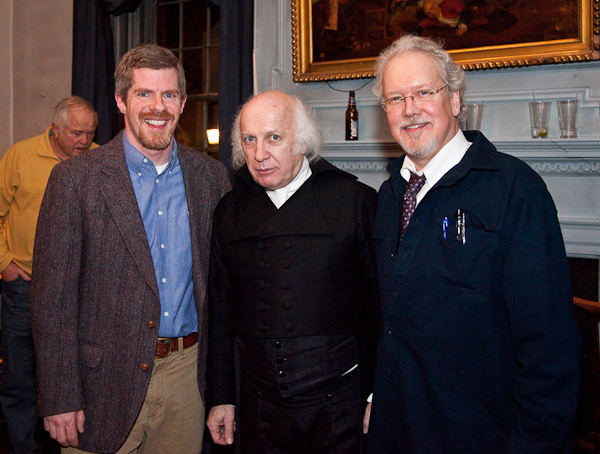
Hughes, Madison, and Patterson
“When it shall be said in any country in the world, ‘My poor are happy; neither ignorance or distress is to be found among them; my jails are empty of prisoners, my streets of beggars; the aged are not in want, the taxes are not oppressive; the rational world is a friend, because I am a friend of happiness:’ when these things can be said, then may that country boast of it’s constitution and its government.†– Thomas Paine
